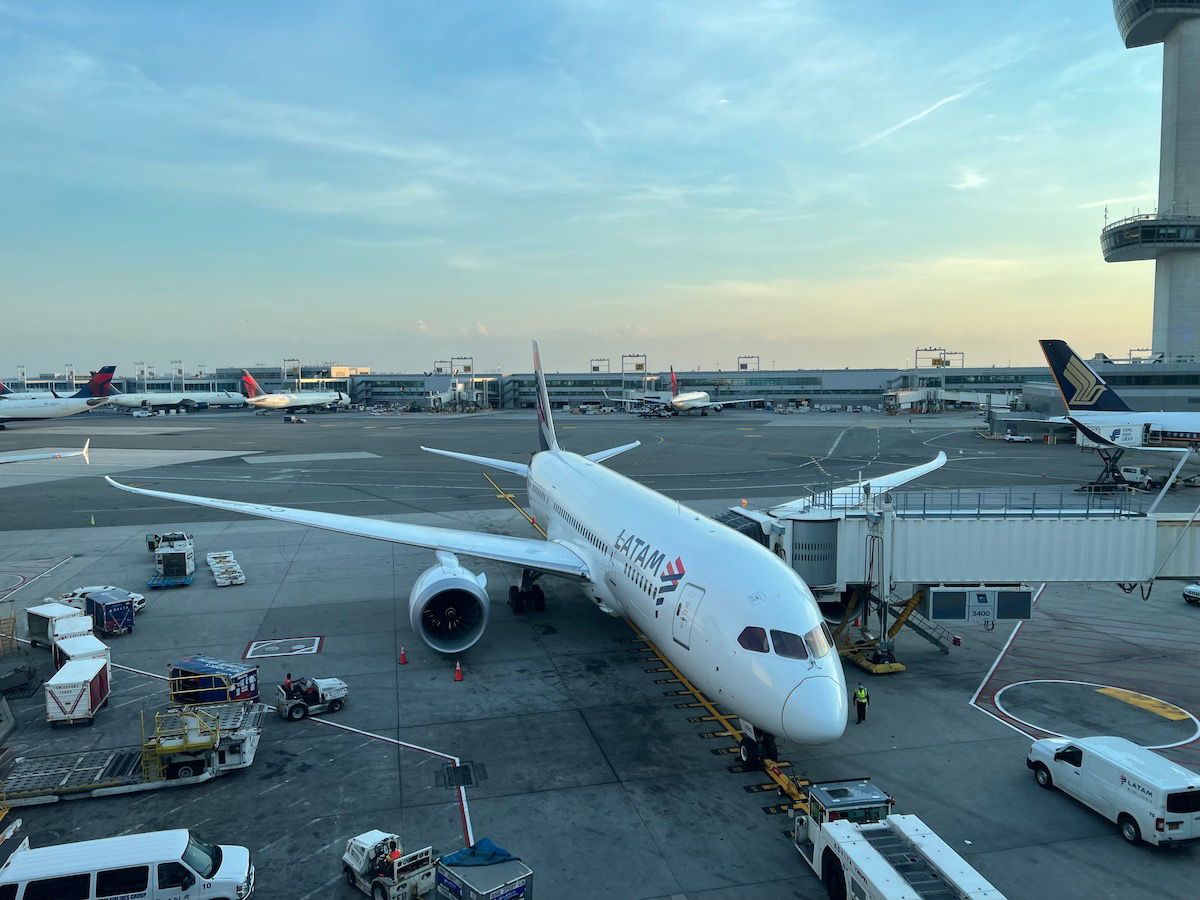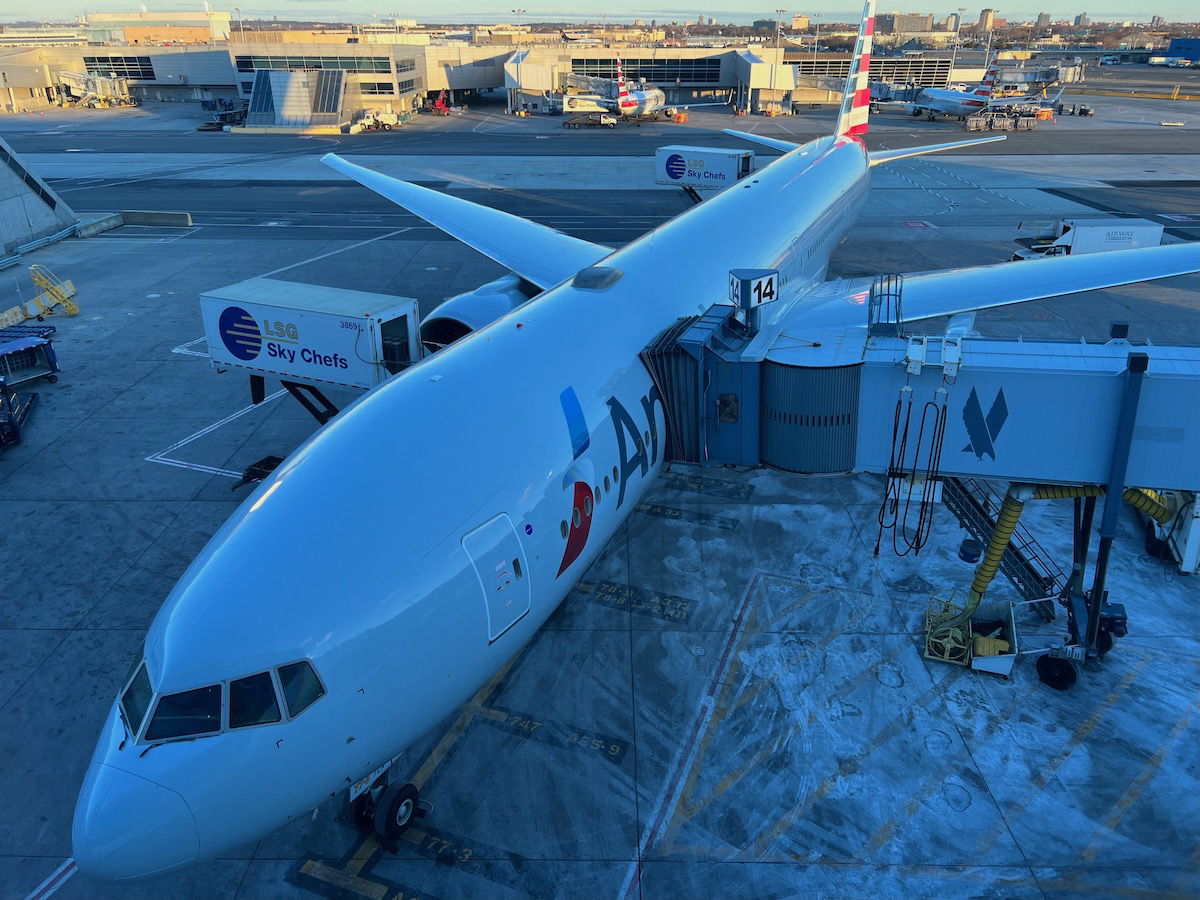The Federal Aviation Administration (FAA) has just extended the slot waiver program for New York area airports for a full additional year, through late 2025. Is this a smart move to reduce delays, or does it just reduce competition?
In this post:
FAA slot waiver extended in New York area
Many congested airports around the globe are slot restricted, which means that airlines need slots in order to operate flights to and from them. Sometimes these slots are awarded on a merit basis, while other times they can be purchased and sold.
The catch is that most slots come with a “use it or lose it clause.” That’s to say that if airlines don’t use their slots at least a certain percentage of the time (typically 80%), then they can lose the slots. This is intended to avoid squat slotting, and the underutilization of airport resources. That way the slots can go to airlines that actually intend to use them.
Since the start of the pandemic, we’ve seen a slot waiver program in place for New York area airports, including New York Kennedy (JFK), New York LaGuardia (LGA), and Newark (EWR). Up until now, this waiver has been in place through the end of the IATA 2024 summer season (late October 2024). That has now been extended by an additional year, through the end of the IATA 2025 summer season (late October 2025).
The reason the slot waiver is being extended is due to an air traffic controller staffing shortage in the New York area, as the number of controllers in the area isn’t sufficient for normal traffic levels. Without increased flexibility, the FAA believes there could be delays and cancelations.
This slot concession is something that Airlines for America (A4A), a lobbying group representing the four biggest US airlines, has been fighting for:
“While the FAA made some progress in 2023, we anticipate an ongoing challenge in staffing of controllers that manage New York airspace through the end of Summer 2025 season based on FAA’s trending staffing data.”

Does the extended airline slot waiver make sense?
I can appreciate the idea behind airline slot waivers. For example, in March 2020, when global aviation came to a standstill, it made sense to give airlines waivers. Demand was down massively, and the situation was rapidly evolving, making it hard for airlines to plan their schedules.
But it has now been well over four years since the start of the pandemic, and we’re seeing a record number of travelers. At this point, airlines are sitting on slots they don’t intend to use, with the only goal being that they want to keep them out of the hands of competitors. Slot waivers are terrible for consumers, as they reduce competition, and lead to higher fares.
It’s ironic the extent to which the government is trying to increase competition and transparency in the airline industry (from blocking mergers, to changing how airlines can market fares), all while not sufficiently addressing the single biggest issue facing aviation, which is the air traffic controller shortage. Admittedly there are different parts of the government working on different things, but still, if you zoom out, it doesn’t look great…
I totally get that new air traffic controllers can’t be trained overnight, but it’s just quite sad that over four years after the start of the pandemic, we’re still seeing the same issues. With the latest extension, it’ll be approaching six years since the start of the pandemic…
As long as the slot waiver remains in place, American can continue to not commit to any strategy in the New York area, and just keep sitting on its JFK slots, despite a lack of a plan…

Bottom line
The slot waiver program in the New York area has just been extended by an additional year, through late October 2025. This is being done due to the air traffic controller shortage, to avoid delays as much as possible. Of course the airlines with slots at these airports are delighted, since they can limit competition for another year. Meanwhile consumers end up being the losers here, as less competition leads to higher fares…
What do you make of the FAA’s latest slot waiver extension?





As stupid as this extension may be... T8 at JFK really is a delight outside of the main TATL departure bank.
I love that honestly. Keep the slots in place they show prestige. When airlines are fighting over spots you come out on top!
All 3 NYC airports and other parts of the NE were under lengthy ATC delays for most of yesterday even though there was little storms directly over NYC.
Even if more slots were available to use, airlines would have to be cancelling flights.
The market to/from NYC has not recovered and will likely continue to fail to grow or shrink since NY State leads the US in outbound immigration.
The notion that slot waivers...
All 3 NYC airports and other parts of the NE were under lengthy ATC delays for most of yesterday even though there was little storms directly over NYC.
Even if more slots were available to use, airlines would have to be cancelling flights.
The market to/from NYC has not recovered and will likely continue to fail to grow or shrink since NY State leads the US in outbound immigration.
The notion that slot waivers are keeping competitors out of the market is not supported by facts. There was nothing in slot rules that allowed reallocation of existing slots to other carriers even if slots were being used 100%.
UA also benefits because EWR is not slot controlled any more but carriers at LGA and JFK (AA, B6 and DL) do not have to use all of their slots which means UA is at less of a competitive disadvantage given that DL has the slots to be 25% larger than UA since EWR is operating at max capacity.
The market to/from NYC has absolutely recovered, the issue is the lack of ATC.
JFK 2023 numbers are within 2% of 2019 numbers (30.5m vs. 31.0m), while LGA and EWR 2023 pax numbers have surpassed 2019 numbers (24.5m vs 23.1m for EWR, 16.2m vs. 15.4m).
For comparison, ATL 2023 vs 2019 is 50.9m vs. 53.5m.
NYC is not going to ever shrink with any significance as a market. Traffic has recovered and is in fact up, not up as much as some places, but up from pre-pandemic levels.
The slots would normally be forfeited if not used 80% and the only reason they wouldn't be reallocated is because of the same slot waiver program. Otherwise if forfeited they'd go back and be reallocated per the IATA WSG which gives...
NYC is not going to ever shrink with any significance as a market. Traffic has recovered and is in fact up, not up as much as some places, but up from pre-pandemic levels.
The slots would normally be forfeited if not used 80% and the only reason they wouldn't be reallocated is because of the same slot waiver program. Otherwise if forfeited they'd go back and be reallocated per the IATA WSG which gives preference to 50% new entrants. Existing slots are grandfathered, but with usage waived, and FAA saying specifically they won't reallocate, that's the only thing keeping them vacant.
The FAA is moving part of Newark's airspace to Philadelphia and even with lump sum bonuses in excess of $100k and relo packages they can't get people to move from Long Island. We wouldn't put up with this in other industries, like lacking USDA personnel causing supply in grocery stores to start diminishing.
Demand recovery is based on revenue and not just number of flights and passenger boardings.
Airlines say that average fares have not recovered in NYC and there is enough data to show that, in aggregate, that is true.
The slot system forces airlines to fly unprofitable capacity or do things such as hourly flights from PHL to LGA or JFK; there is strong incentive not to lose slots and the FAA has a...
Demand recovery is based on revenue and not just number of flights and passenger boardings.
Airlines say that average fares have not recovered in NYC and there is enough data to show that, in aggregate, that is true.
The slot system forces airlines to fly unprofitable capacity or do things such as hourly flights from PHL to LGA or JFK; there is strong incentive not to lose slots and the FAA has a very short history of doing that.
They removed slot controls at EWR when UA failed to use its slots and that is undoubtedly what would happen at JFK and LGA if slots were not adequately used; AA, B6 and DL all know that
The primary point is that slot usage exemptions do not inhibit competition because every LGA and JFK airline has the ability to remove the same percentage of flights; no one is forced to not fly a portion of their slots.
And you are right that the FAA is in the midst of restructuring NYC airspace so this seems like a really pour time to throw more capacity into the mix.
The FAA needs to fix its issues but 3 years post-covid is not a long time in light of the need for ATC to get it 100% right, something that airlines did not do in their post-covid ramp up.
The folks at American and Delta are genius. They are getting the government to block ULCCs from getting any more slots at New York area airports, (Frontier, Allegiant and Sun Country only have a few measly slots a LGA, JFK and Newark) keeping fares sky high. Gotta love it.
For real! Genius! Why are people mad?!
Even back when the FAA was "fully staffed," NY was still the king of IROPs any time a butterfly sneezed. That's not going to change. At this point, if the slots aren't being used, just cancel them.